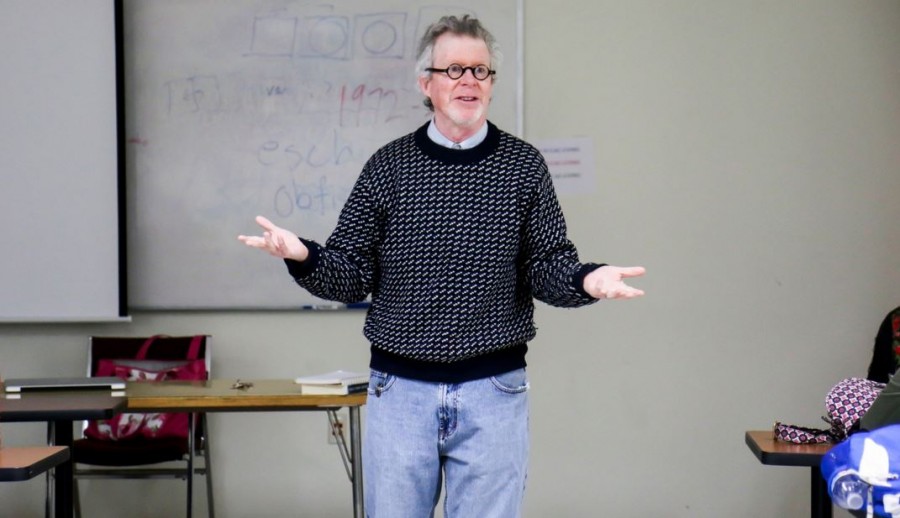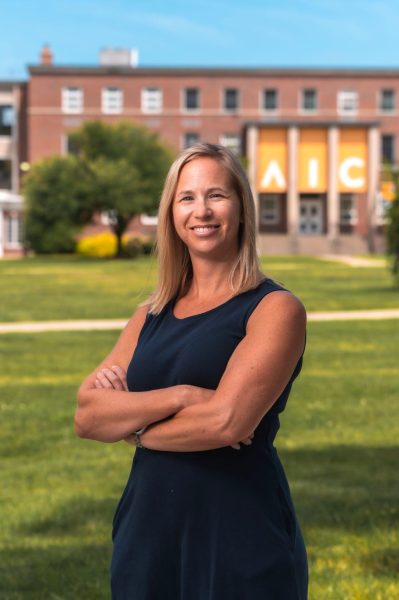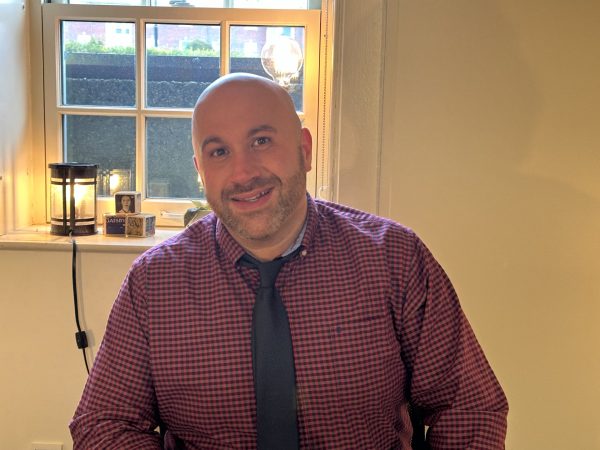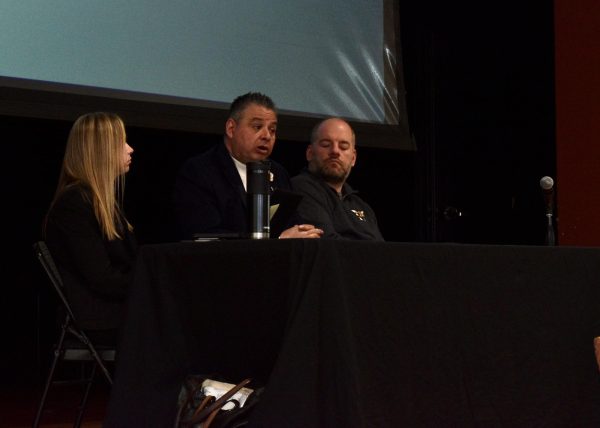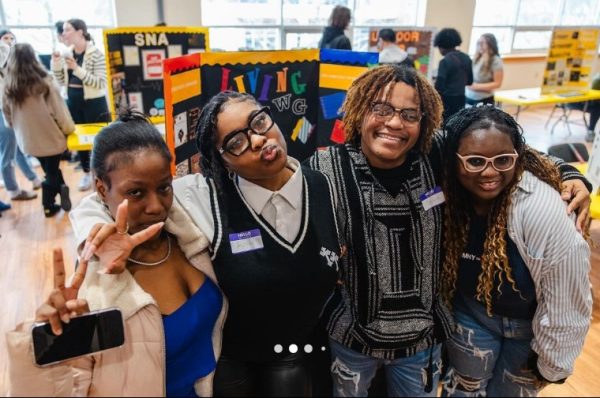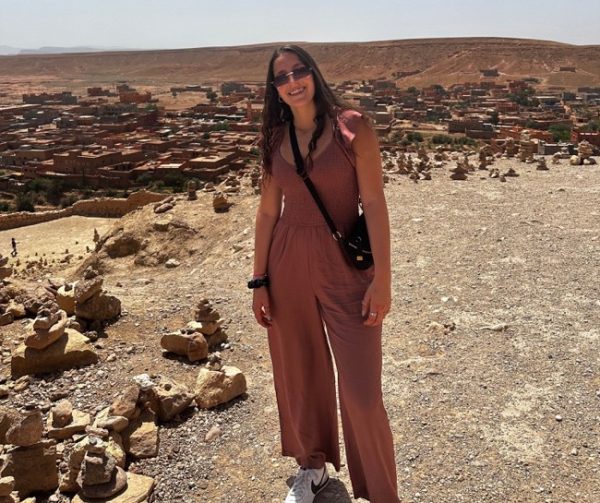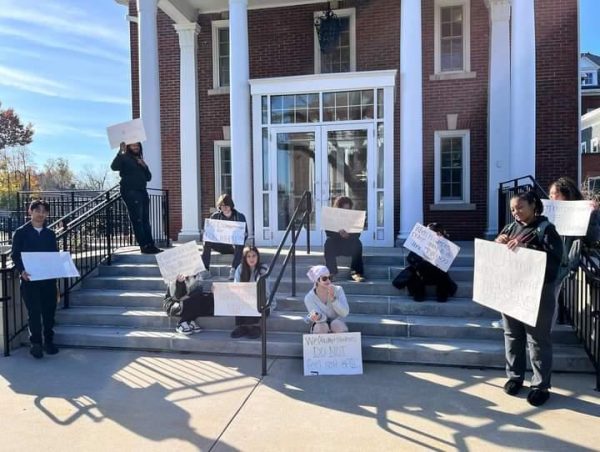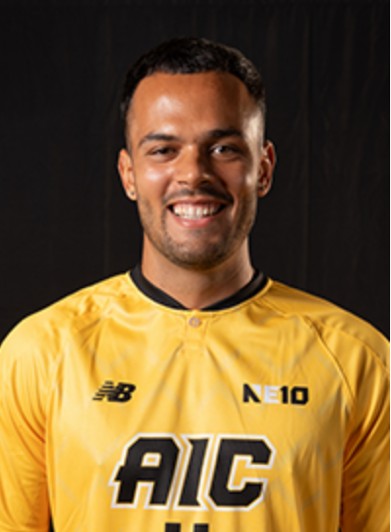The dark side of the church
Tom Shea spoke to Professor Mary Ellen Lowney’s Journalism 2 class on the dark side of the catholic church.
April 14, 2016
At 13 years old Tommy Shea was a devout alter boy at Springfield’s Our Lady of Hope and convinced that he would someday follow in his uncle’s path of becoming a priest.
While working as a reporter for the Springfield Republican 20 years later, Shea helped to uncover and publish molestations cases by local Catholic priests. From that point on, his opinion of priests changed significantly.
“I still pray often,” he said. “But mostly just for the Yankees to win.”
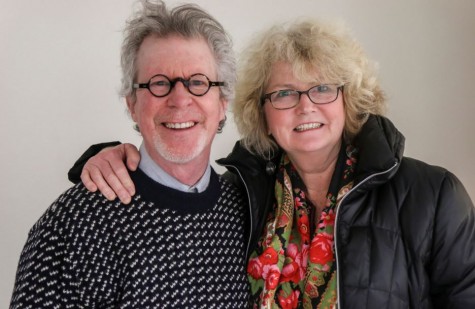
Tommy Shea and Mary Ellen Lowney.
Shea visited Professor Lowney’s Journalism II class at American International College on Wednesday, April 6 to discuss the film “Spotlight” which students finished watching last week. The movie tells the story of reporters from the Boston Globe exposing dozens of Catholic priests that molested young boys in the Eastern part of the state.
Shea was a third-string court reporter for the paper at the time he was assigned to follow the case of Father Richard Lavigne on molestation allegations in Springfield.
Shea had very good relationships with priests and bishops in the area but after making various phones to them, he didn’t receive any calls back.
According to Shea, it was very unusual for the Church not to return his calls. That’s when all the “covering up” of information began.
Aside from multiple allegations against Father Lavigne at the time, the priest was also the main suspect in the 1972 murder of 13-year-old churchgoer Danny Croteau.
Yet he was never charged.
And neither were many of the priests exposed by The Boston Globe in “Spotlight.”
Instead of charging the priests, the Catholic Church relocated them and destroyed documents.
“The person in charge of records at the Springfield Diocese got arrested for destroying records,” said Shea.
The lack of media coverage on the Lavigne case furthered the public’s opinion against the victims.
“It was clear people were on the side of Father Lavigne because he did a lot of favors for people,” said Shea.
According to the reporter, Lavigne often hung around large families, sometimes broken families.
Senior Public Relations Specialist at AIC Candy Lash was also present for Shea’s visit and she reiterated Lavigne’s habits.
Growing up in East Springfield, Lash had personal connections with Lavigne. Her best friend and college roommate was his first cousin. She also was a member of St. Mary’s parish while Father Lavigne practiced there.
Lash was a neighbor to a large family in East Springfield as a child.
Almost all the young boys in that family were molested by Lavigne, said Lash.
“He went after boys that were slighter in stature and softer in disposition,” she said.
Lash also taught Croteau’s younger sister at Our Lady of the Sacred Heart in Springfield and noticed how much his murder destroyed the family.
As Shea spoke to the classroom in his worn jeans, retro sweater and tiny, circular glasses, there was a sense of disappointment in his voice.
The four years in which he covered the Church drained Shea.
A stranger even approached his mother at a super market and accused her son of destroying the Church.
“She wasn’t really bothered. She had seven kids and she knew I wasn’t out to get anyone,” said Shea.
Shea focused on presenting the truth to the public and often wished he could have done more for the victims.
“What frustrates reporters is when you can’t get it all to deliver justice,” he said.
One of the victims of Father Lavigne played Little League Baseball with Shea as a kid.
According to Shea, he was so angry with the Church while covering the story that his wife asked him if he was molested too.
Shea felt for the young boys that did become victims.
“Even if I was molested, I wouldn’t have had the vocabulary to tell. Plus, my father wouldn’t believe me,” he said.
Perhaps the most shocking aspects of the Father Lavigne saga is that he was never convicted of Croteau’s murder nor was he charged with sexual abuse. He was only forced to register as a sex offender.
Chelsea Lombardo, a freshman from Bay Shore, New York, was most interested in hearing Shea’s insider information that did not get published.
“It’s pretty disgusting and unbelievable that people still get away with these types of things in 2016,” she said.
Lombardo thought that the Catholic Church should be protecting children, not preying on them.
Although Shea no longer works for the paper, his stories about the Catholic Church impacted the Journalism classroom.
More so, Shea’s findings impacted his personal life.
“I have trouble listening to priests,” said Shea. “It’s their silence.”
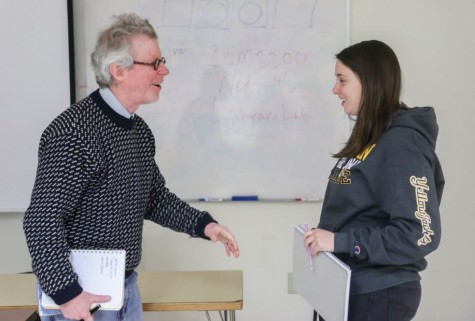
Tommy Shea and Heather Brouillard.



